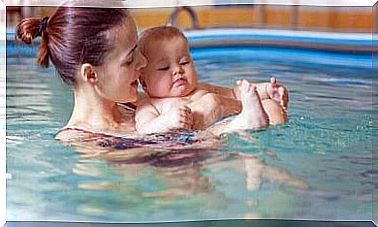Improve Your Children’s Reading Comprehension With These 7 Strategies

It is very important for your children’s academic development that they have a good reading comprehension. When children do not understand what they are reading, they can quickly become frustrated while reading. By reading comprehension we mean that your child reads a sentence or a text and grasps and understands the individual words and the meaning of the entire text.
If you are wondering why your child has bad grades in school or why they have problems in certain subjects, then you should definitely test their reading skills. Fortunately, you can improve your child’s reading comprehension with the help of the teachers at home.
With the right strategies, you can learn to create concepts and practice different reading styles with your child. For example, you can practice literal, inferential and critical reading with him and thereby improve his reading comprehension.
How can you improve your child’s reading comprehension?
1. Make connections and relationships
As you read with your child, you should explain to them how the text relates to their own life. In fact, this is one of the best tricks for memorizing something you’ve read. If you understand that what you have read has a practical application, then this text becomes more important for you and you will be able to remember the content better.
First, you should ask your child to verbally express this connection. Then it can go on in silence and on its own. In this way, it also learns to have fun working independently.

2. Ask questions about understanding the text
By asking your child questions about the information in the text, you are teaching them to pay attention to clues. Therefore, you should motivate them to deal more closely with the text and to extract the relevant information from it.
One of the hallmarks of a good reader is their ability to ask questions and find the right answers. Your child can use text or other sources for this.
3. Create mental images to aid reading comprehension
Texts are more than just a sheet of paper covered with letters; they are universes to be discovered and explored. Therefore, you should ask your child to visualize the text and come up with stories about it. This will make it easier for him to memorize what he has read.
It can be very helpful if you ask your child to show how they understand the concepts and the content of the text. As a result, it will not only read the text with its eyes, but will be able to remember it with all five senses.
4. Make hypotheses about what you have read to improve reading comprehension
The literal text layer is the information on the page. You can determine this through specific questions and answers. In addition, there is another level that is equally important for reading comprehension. Therefore, encourage your children to think about the consequences of the situation.
You can also ask them to think about what is causing a problem. Ask your child what they think will happen next in the book you are reading.
5. Identify the main ideas and elements
It is important for children to understand the basic ideas of what they are reading. This includes the facts and characters that directly influence the development of the story.
Therefore, you should offer your child different genres to read. In addition to non-fiction, your child should also read adventure stories and children’s novels. That way, it will also learn to identify various text markups such as headings, bold, italic, images, and tables of contents.
More tips to improve children’s reading comprehension
6. Reread the text passages that you did not understand
The first time you read something, you may not understand everything right away. Therefore, you may have to read some passages several times before you have fully understood them. Explain this to your children and encourage them to do so.
In addition, every time you read a text you learn new details and information that contribute to better understanding. Sometimes it is better if you read the text in silence and sometimes it can be helpful if you read the text aloud.

7. Look up the words you don’t know
If you do not understand many of the words in a text, then you cannot understand the full meaning and content. Your child’s vocabulary will also improve and expand as they look up definitions or try to understand the meaning of the word from context.
As you can see, there are a few strategies that can help improve your children’s reading comprehension. In addition, they improve their communication and cognitive skills at the same time. This is a great way to help your children perform better in school. Reading also trains and develops critical thinking skills.









